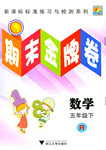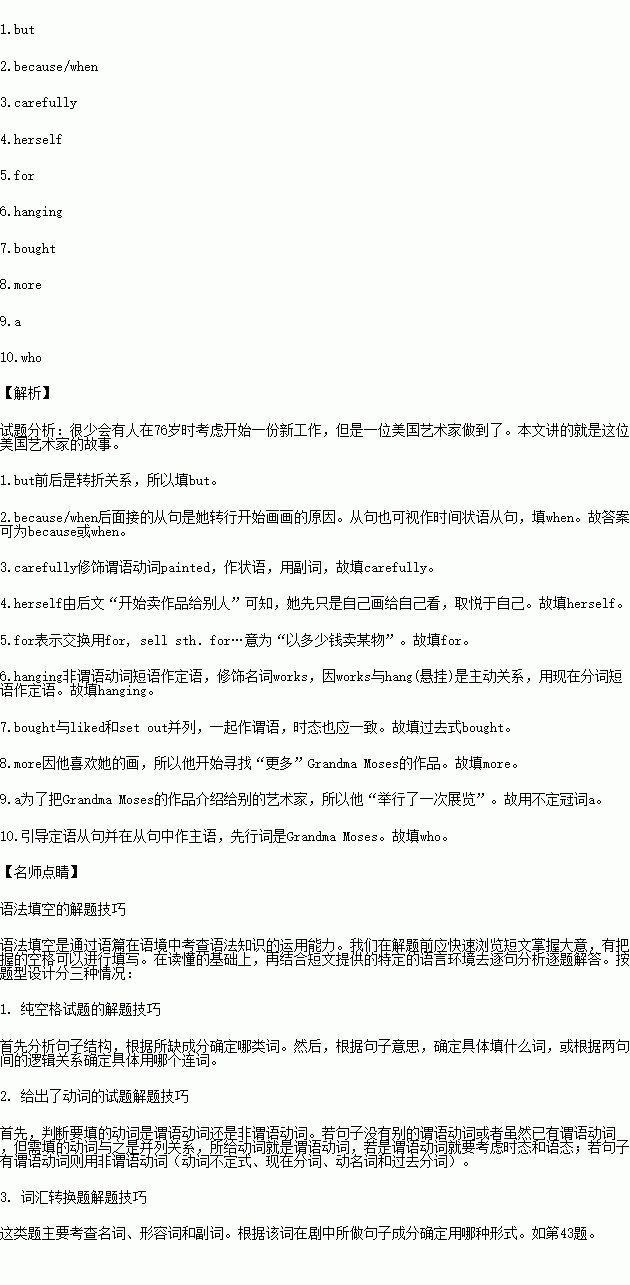题目内容
语法填空。
用正确的词填空(注:有提示词的,请写出它们的正确形式;没有的,请根据上下文的意思,填写适当的词)
Few people would even think of beginning a new job at the age of 76, ___1.___ one of America's most famous artists did just that. Anna Mary Robertson, better known as "Grandma Moses", turned to painting _2.__ she was too old to work on her farm.
Grandma Moses was crazy about painting soon after she picked it up and worked hard at it. She painted___3.__ (care) and her works were nice .She first painted only to please __4.__(she),and then began to sell her works ___5.__ a little money. In 1993,a collector, Louis Caldor, happened to see several of Grandma Moses' works ___6.___ (hang) in a shop. He liked them ___7.___ (buy) them at once, and set out to look for ___8.___(much).Caldor held ___9.__ show to introduce the works of Grandma Moses to other artists. Grandma Moses, ___10.___ was world-famous ,died on December 13, 1961,at the age of 101.
 期末金牌卷系列答案
期末金牌卷系列答案 轻松课堂标准练系列答案
轻松课堂标准练系列答案书面表达
中国人出国旅游的不文明行为越来越受到广泛关注。请以表格中所列举的事实为依据,写一则英语短文,谈谈自己的看法。
不文明行为 | 你的看法 |
在公共场所: 随地吐痰 乱丢垃圾 大声喧哗 …… | 注意言谈举止 爱护环境 维护中国人的形象 …… |
注意:
1. 文章必须包括表格中的提示内容,可以增加细节使行文连贯;
2. 词数100左右;
3. 开头已经给出,不计入总词数;
4. 参考词汇:乱丢 (垃圾) litter;吐痰 spit;形象 image;声誉 reputation
As more and more Chinese go traveling abroad, reports about their bad manners flood in.

